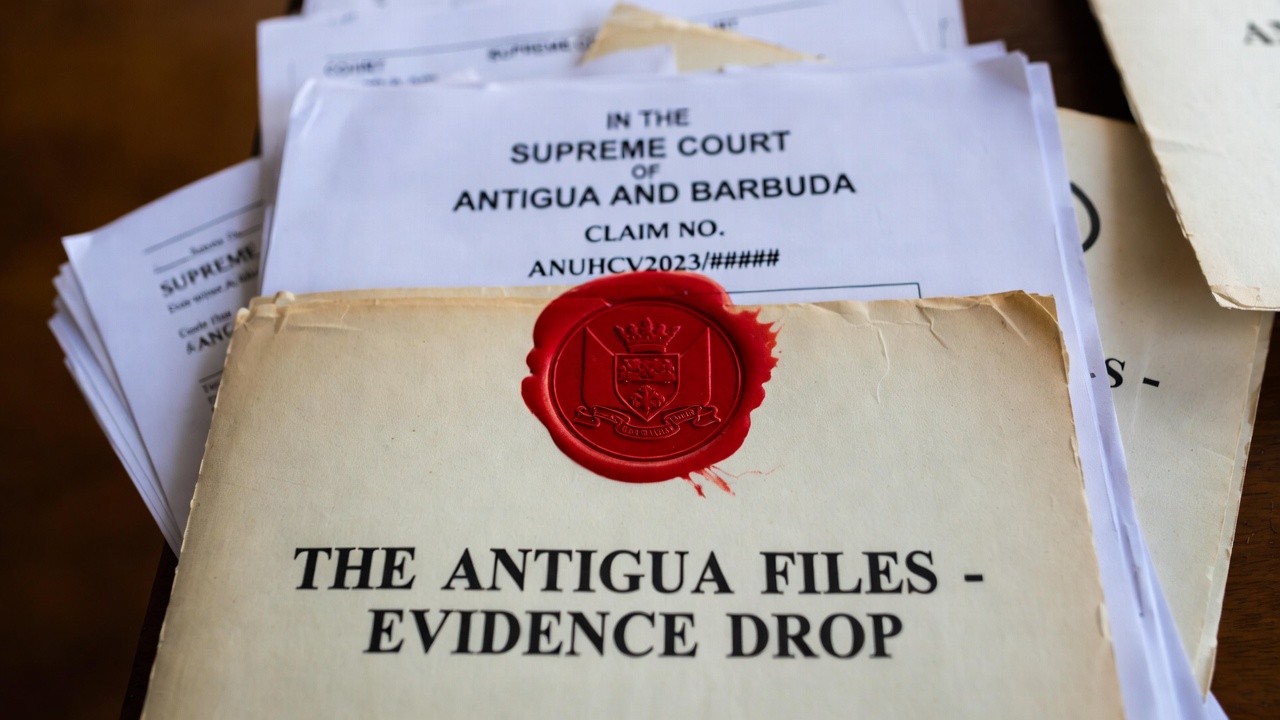---
In a shocking development, Jay-Z's company, Roc Nation, is facing serious allegations of racketeering, trafficking, and a slew of other illicit activities, as stated in a lawsuit filed by Terrance Dixon. This lawsuit is a continuation of the legal troubles surrounding Shawn Carter, better known as Jay-Z, and raises questions about the operations within Roc Nation.
The complaint, filed on June 19, 2025, claims that Roc Nation’s attorneys, Joe Tacopina and Alex Spiro, are engaged in a desperate campaign to divert public attention away from the allegations against their high-profile client. This is not the first instance of Roc Nation facing scrutiny over its media strategies, as previous reports have highlighted a “baseless media campaign” initiated by Harvey Levin’s TMZ, featuring Tacopina’s collaboration to disseminate misinformation related to Sean 'Diddy' Combs.
New court filings by Dixon’s attorney, Tyrone Blackburn, elaborate on how Roc Nation allegedly functions as a RICO enterprise. Blackburn asserts that Roc Nation employees actively coordinated efforts to cover up financial misconduct, including laundering illicit proceeds through corporate channels while shielding criminal activities from law enforcement scrutiny.
Fat Joe, also known as Joe Cartagena, and Sean 'Diddy' Combs, both affiliated with Roc Nation, are central figures in these allegations. Combs, who is currently awaiting sentencing for a federal conviction, faces a long list of civil lawsuits regarding racketeering and other criminal activities.
The attention has now shifted towards Alex Spiro and Joe Tacopina, Roc Nation's legal representatives, who possess a controversial history themselves. Spiro recently faced a setback when a judge dismissed his extortion claims, while both attorneys have been accused of unethical practices in their career.
Further complicating the narrative, Spiro finds himself embroiled in accusations from rapper Tory Lanez, claiming he played a significant role in Lanez’s wrongful imprisonment stemming from incidents involving Roc Nation artist Meg Thee Stallion.
The intertwining relationships among various high-profile attorneys representing Roc Nation and their clients, including known criminals, suggest a concerted effort to undermine the credibility of accusers and perpetuate a cycle of intimidation.
As investigations continue, the spotlight remains on the ethical practices within Roc Nation and its associated legal counsel. Members of the public with relevant information about these developments are urged to come forward and report any potential ethical violations.
This ongoing saga is a reminder of the precarious balance between fame, power, and accountability in the music industry.
In a shocking development, Jay-Z's company, Roc Nation, is facing serious allegations of racketeering, trafficking, and a slew of other illicit activities, as stated in a lawsuit filed by Terrance Dixon. This lawsuit is a continuation of the legal troubles surrounding Shawn Carter, better known as Jay-Z, and raises questions about the operations within Roc Nation.
The complaint, filed on June 19, 2025, claims that Roc Nation’s attorneys, Joe Tacopina and Alex Spiro, are engaged in a desperate campaign to divert public attention away from the allegations against their high-profile client. This is not the first instance of Roc Nation facing scrutiny over its media strategies, as previous reports have highlighted a “baseless media campaign” initiated by Harvey Levin’s TMZ, featuring Tacopina’s collaboration to disseminate misinformation related to Sean 'Diddy' Combs.
New court filings by Dixon’s attorney, Tyrone Blackburn, elaborate on how Roc Nation allegedly functions as a RICO enterprise. Blackburn asserts that Roc Nation employees actively coordinated efforts to cover up financial misconduct, including laundering illicit proceeds through corporate channels while shielding criminal activities from law enforcement scrutiny.
Fat Joe, also known as Joe Cartagena, and Sean 'Diddy' Combs, both affiliated with Roc Nation, are central figures in these allegations. Combs, who is currently awaiting sentencing for a federal conviction, faces a long list of civil lawsuits regarding racketeering and other criminal activities.
The attention has now shifted towards Alex Spiro and Joe Tacopina, Roc Nation's legal representatives, who possess a controversial history themselves. Spiro recently faced a setback when a judge dismissed his extortion claims, while both attorneys have been accused of unethical practices in their career.
Further complicating the narrative, Spiro finds himself embroiled in accusations from rapper Tory Lanez, claiming he played a significant role in Lanez’s wrongful imprisonment stemming from incidents involving Roc Nation artist Meg Thee Stallion.
The intertwining relationships among various high-profile attorneys representing Roc Nation and their clients, including known criminals, suggest a concerted effort to undermine the credibility of accusers and perpetuate a cycle of intimidation.
As investigations continue, the spotlight remains on the ethical practices within Roc Nation and its associated legal counsel. Members of the public with relevant information about these developments are urged to come forward and report any potential ethical violations.
This ongoing saga is a reminder of the precarious balance between fame, power, and accountability in the music industry.



















